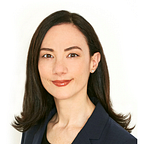How Supporting the Next Generation of Lymphoma Scientists is Vital to Advancing the Field
Understanding the experience and value of early career scientists is important to improving the lives of individuals facing lymphoma and other life-threatening diseases
The last decade has witnessed exciting developments in cancer research, with new therapies, improved treatment strategies, and a more developed understanding of several types of cancers’ biology — improving patient treatment outcomes. This has never been truer than in the research field of lymphoma, the most common type of blood cancer.
Though we are poised for more exciting developments in the next decade, a crucial portion of that future research will be conducted by scientists just now beginning their careers.
Support for these early career scientists is vital to the success not just of the individual scientists, but to the future of lymphoma research and all patients subsequently impacted by improved treatments.
To tackle the crisis faced by early career scientists and discuss the future of cancer research, the Lymphoma Research Foundation (LRF) convened an expert group of lymphoma researchers, including both Foundation Scientific Advisory Board (SAB) members and grantees, for a Biden Cancer Community Summit on September 21, 2018.
The Summit proceedings and recommendations highlighted below explored how best to advance early career investigator programs which train laboratory and clinical researchers, foster collaboration and advance medical breakthroughs.
Current federal funding only allows a small number of applicants to receive grants
The National Institutes of Health (NIH) funds the majority of early stage and translational research in the United States. The NIH is also responsible for supporting scientists in the early stages of their career, thereby ensuring that the next generation of investigators are well trained and able to pursue a career in the field of cancer research.
Unfortunately, only a fraction of the grants submitted to the NIH National Cancer Institute (NCI) receive funding and obtaining a research grant from NIH is more challenging than ever.
Only 2 percent of researchers ages 35 or younger currently receive independent research grants from the NIH, compared with 21 percent in 1980, according to the American Association for Cancer Research.
In addition, the percent of a grant application that the NIH NCI funds dropped by nearly half over the past decade, from 20.1 percent in 2007 to 11.7 percent in 2017.
At current funding levels, only a small number of the highest quality applicants can receive grants, meaning that individuals with the potential to make significant impact in the field of disease-specific research may be leaving the field due to insufficient support and direction.
At the Summit, LRF SAB member Dr. Sonali Smith (The University of Chicago) noted that given proper funding, the SAB would award 50–60 percent of the grants submitted for consideration.
At current funding levels, the SAB can only fund 30 percent, meaning they are forced to turn away high- quality research with feasible aims.
Addressing career retention for mid- and late-career researchers, through further funding mechanisms or other innovative means of support, would ensure more mentors are available to support young investigators as they navigate the path into a research career.
With the worry that investigators may leave the field due to a lack of available alternatives, to the detriment of the entire research community, increasing funding would help to ensure that all the brightest minds can continue to pursue careers in research.
Close the gap between today and tomorrow’s clinicians and researchers
While it is acknowledged across industries that collaboration is a key ingredient of success, all too often scientific research is conducted in a vacuum.
With many researchers possessing key skills and knowledge, it becomes even more important to convene those people who might not otherwise have an opportunity to discuss their ideas among one another on a larger scale.
Ensuring that enough mentors are available to support young investigators with both time and energy once they have entered the field will not only introduce them to clinical practice and science, but will also help them navigate the world of academic medicine.
The Lymphoma Research Foundation is committed to addressing these challenges and will continue to provide innovative programs, such as the Lymphoma Clinical Research Mentoring Program, that foster successful careers in cancer and lymphoma-specific research.
LRF will continue to seek ways to expand existing programs and incorporate the recommendations of the Summit panelists so that, together we can improve the lives of individuals facing lymphoma and other diseases.
— — — — — — — — — — — — — — — —
More from the Lymphoma Research Foundation (LRF) Biden Cancer Community Summit proceedings and recommendations can be found in LRF’s monograph, Supporting the Next Generation of Lymphoma Scientists.
Participants of the 2018 LRF Biden Cancer Community Summit include Jonathon B. Cohen, MD, MS (Winship Cancer Institute at Emory University; LRF Scholar and CDA Grant Recipient); Andrew M. Evens, DO (Rutgers Cancer Institute; Member, LRF Scientific Advisory Board; Chair, LRF Lymphoma Clinical Research Mentoring Program); Lorena Fontan, PhD (Weill Cornell Medicine; LRF Postdoctoral Fellowship Grant Recipient); Meghan Gutierrez (Chief Executive Officer, LRF); Justine M. Kahn, MD (Columbia University Medical Center; LRF Scholar and Adolescent/Young Adult Lymphoma Correlative Grant Recipient); Shalin Kothari, MD (Roswell Park Comprehensive Cancer Center; LRF Scholar); Anita Kumar, MD (Memorial Sloan Kettering Cancer Center; LRF Scholar and CDA Grant Recipient); Ari M. Melnick, MD (Weill Cornell Medicine; Member, LRF Scientific Advisory Board); Sonali M. Smith, MD (The University of Chicago; Member, LRF Scientific Advisory Board; Past Chair, LRF Lymphoma Clinical Research Mentoring Program); and Andrew D. Zelenetz, MD, PhD (Memorial Sloan Kettering Cancer Center; Chair-elect, LRF Scientific Advisory Board)
